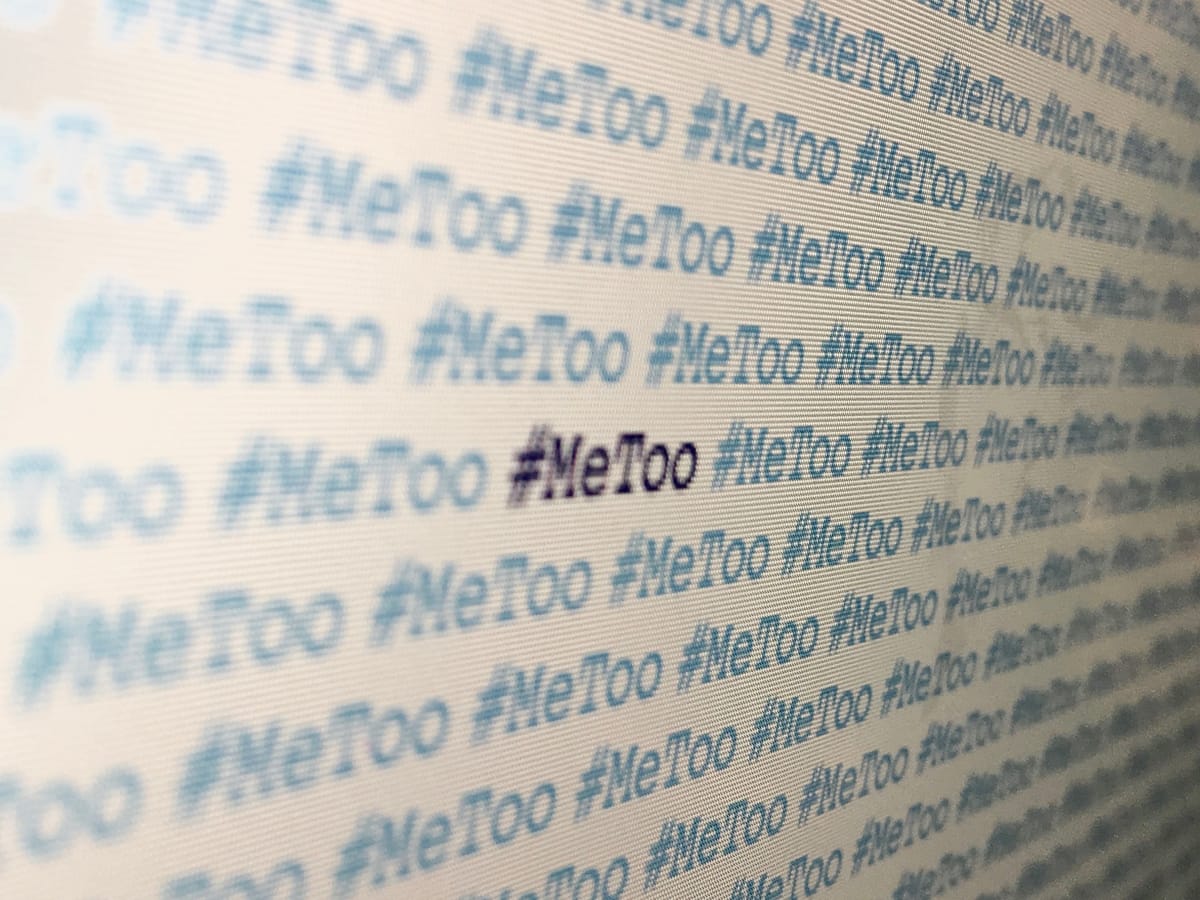Can #MeToo Really Make a Difference for Women in India?

Bella Saltiel, MA Middle Eastern Studies
India’s #MeToo movement has been gathering momentum. The hashtag has been used to call on perpetrators to account for their sexual misconduct and has primarily been focused on the CEOs of English Language media outlets. Many powerful men have already been asked to resign including the Minister for External Affairs MJ Akbar, Times of India Hyderabad Editor KR Sreenivas, and Hindustan Times Editor Prashant Jha. There is a genuine hope that this public shaming will lead to real social change.
Women such as Mahima Kukreja have taken to Twitter to publicly denounce their male colleagues. Kukreja and many others assert that they are finding themselves in unsafe work environments where men in positions of power are forcefully distorting boundaries.
Kukreja tweeted that “@Wootsaw [twitter handle for Utsav Chakravarty, an Indian comedian] is a piece of s***. He sent me a d**k pic, was creepy, then cried saying I’ll ruin his career if I tell others. I told two of the most influential men in comedy in India. Nothing happened.” During an interview with Aljazeera, Kukreja explained that male colleagues protecting the perpetrator is contributing to a culture of silence that normalises sexual assault.
In the same interview, Trisha Shetty said that we are dealing with an “ideal victim narrative” which has prevented women from reporting abuse. Shetty claims women are forced into corners where they are accused of being responsible for the abuse they receive: due to their clothes; because they were drinking; because they knew the man who assaulted them; and so on and so forth.
Due to this culture of victim blaming some women report feeling elements of ambiguity in the attack. For example, when bosses have invited them to their hotel room late at night to discuss a meeting or suggested going for drinks alone, they felt partly responsible for the abuse they then received. This supposedly ambiguous element left many women feeling ashamed, confused and ultimately afraid that if they speak out they would lose their job. Which is what makes calling perpetrators to account on a public forum so unprecedented and impressive.
#MeToo in India is rising – but can it truly be subversive when it is a movement in the English language? This is especially problematic as the vast majority of the Indian population will receive their news and entertainment in their regional language (there are 22 official languages in India). Despite the fact that regional channels have reported on the movement until harassers from regional cinema or news outlets are also publicly named, this will always be a movement for upper-caste and upper-class women from the English media.
“#Metoo in India is rising – but can it truly be subversive when it is a movement in the English language?”
The fact that #MeToo has operated almost entirely in English has excluded women who do not have access to literacy, the English language, electricity, or the internet. Some regional journalists are wondering if #MeToo is actually reinforcing brahminical (highest caste) oppression on Dalit (lowest caste) voices by not taking these women’s experiences into account. They also cite Raya Sarkar, a Dalit activist and law student at UC Davis, who revealed a “List of Sexual Harassers in Academia” as the original person who started this movement in India, a full year before #MeToo took off. This perspective becomes all the more pertinent considering the recent Twitter Storm by upper caste individuals, decrying these voices after Twitter CEO Jack Dorsey was pictured with a poster calling to ‘Smash Brahminical Patriarchy’.
Dalit activist Thenmozhi Soundararajan designed the poster to raise awareness of an “interlocking system of caste, gender norms and rituals under Brahminic tradition that enforce caste through women and their reproductive function”. She argues that with no real discussion about the ways that caste systems interlink with sexual violence and oppression in India then there is no way forward towards freedom for the majority of women in Indian society.
Social activist Ruth Manorama credits the #Metoo movement with breaking the prevalent culture of silence in India, however, she went to on elaborate that it should be inclusive to include Dalit women as well. “The women in the movement are speaking out and it is necessary that the culture of silence be broken, but it should be holistic”. Manorama is of the view that Indian women cannot be fully emancipated if other systemic problems in society like caste are not addressed simultaneously as well.
Photo Credits: Creative Commons



